
China’s Sports Corruption Scandal Threatens to Overshadow Paris Olympics
Kathmandu, June 22: A sweeping wave of corruption investigations targeting China’s top sports officials has cast a shadow over the country’s preparations for the upcoming Paris Olympics, where Chinese athletes are expected to challenge the U.S. for the most gold medals.
On May 30, the Central Commission for Discipline Inspection (CCDI), the Communist Party’s top graft buster, announced it had launched an investigation into Gou Zhongwen, a former chief of the General Administration of Sport (GAS), China’s top sports regulatory body. Gou is the latest and highest-ranking among more than a dozen sports officials ensnared in the sweeping crackdown on corruption that began in late 2022 and has focused on bribery in soccer and the preparations in the lead-up to the 2020 Tokyo Summer Olympics and 2022 Beijing Winter Games.
The revelation may come as no surprise to long-suffering Chinese soccer fans, who have bemoaned the perennial poor performance of the national men’s side, widely attributed to endemic corruption. However, the ever-widening scandal embroiling top former Chinese Olympic officials threatens to cast a pall over the lead-up to the Paris Games, as the nation’s athletes and their stellar performances are a source of tremendous national pride.
Diving, table tennis, and gymnastics are among the events in which the Beijing team are habitual favourites to win gold, with champion athletes becoming household names in the country of 1.4 billion people. Since pistol shooter Xu Haifeng became the first-ever Chinese sportsperson to win gold in the 1984 Olympics in Los Angeles, when it rejoined the Games after a three-decade absence, the nation’s athletes have stormed to the top of the medal rankings, receiving the most overall at the Summer Games in 2008, 2012, and 2016 (when they tied with the U.K.), and trailing only the U.S. in 2020.
Going for Gold
In a few weeks in Paris, Gracenote, the content solutions business unit of Nielsen, predicts that China’s athletes will earn the second-biggest medal haul after the U.S., but should challenge the Americans for first place on gold.
The first move in this corruption dragnet was set in motion in November 2022 when graft busters targeted Li Tie, the former head coach of China’s national men’s soccer team. The veteran star midfielder was charged with bribery almost a year later, ultimately admitting in a television documentary early this year to bribing top Chinese Football Association (CFA) officials to get the head coach role and earlier in his career of match-fixing.
Since then, a growing list of senior soccer officials and sports regulators have come under investigators’ scrutiny, including former GAS deputy director Du Zhaocai and former head of the Chinese Football Association (CFA) Chen Xuyuan. The graft busters have been tight-lipped about Gou’s offenses, but his downfall followed the investigation of several of his former subordinates over the past year. The career paths of these former sports officials received a major boost in 2017, the year China’s sports reforms and Olympic preparations were intensified.
Gou, a technocrat with an engineering background and eight years of experience working in the Beijing municipal government, was named the party chief of the GAS in late 2016. He then served as president of the Chinese Olympic Committee and led preparations for the Tokyo 2020 Olympic Games and the Beijing 2022 Winter Olympics. The 66-year-old retired as GAS director in 2022. At the time the probe was launched, Gou was serving as deputy director of the Chinese People’s Political Consultative Conference’s (CPPCC) Committee on Ethnic and Religious Affairs.
At least four of Gou’s subordinates have been caught up in the corruption probe, including Liu Aijie, former director of the GAS’s Preparation Office for the Olympic Games, who was sentenced earlier this year to 11 years in jail for bribery. Hu Guangyu, former deputy director of the GAS’s political science and law department, Ni Huizhong, former head of China’s Winter Sports Management Center, and Cao Weidong, former Communist Party chief of Beijing Sport University, are all being probed for corruption.
In April 2023, the CCDI launched a disciplinary inspection specifically targeting the GAS. Before the inspection started, the GAS held an internal meeting pledging to seriously crack down on corruption in Olympic preparations, sports reforms, project management, and qualification certification, all of which involve the disbursement of massive amounts of resources and capital.
In March 2024, former CFA head Chen was sentenced to life in prison for accepting more than 81 million yuan ($11.2 million) in bribes from 2010 to 2023, during which he took advantage of his position. The same month, Li pleaded guilty to a court on five bribery charges involving a total of 110 million yuan. He awaits sentencing.
Olympic Cash Cow
The downfall of Gou and his subordinates has cast a spotlight on China’s highly determined state-led pursuit of Olympic medals, drawing increased scrutiny ahead of the Paris Games that start on July 26. In preparation for the 2020 Tokyo Olympics and the 2022 Beijing Winter Olympics, the GAS in May 2017 set up a temporary department called the Olympic Preparation Office. Gou headed the leadership committee overseeing the office and handpicked close allies Liu Aijie and Hu Guangyu to lead it, Caixin has learned.
According to a GAS document seen by Caixin, the Olympic Preparation Office was tasked with overseeing and coordinating work ahead of the Games, such as implementing directives made by the leadership committee, coordinating and assessing national teams’ training, introducing advanced training methods from overseas, and collecting and analyzing competition-related intelligence.
Hu, a former professor at North China Electric Power University in Beijing, was favored by Gou for advocating the use of technology to aid the development of sports and promoting the growth of the industry, said a person close to Hu. Liu, a veteran sports regulator and a former head of China’s national canoeing team, was appointed to head the Olympic Preparation Office in May 2017, just five months before he was set to retire from a deputy bureau-level post at the GAS.
A friend of Liu told Caixin that the appointment indicated that Liu’s support for the adoption of technology in the sports industry and training methods was viewed favorably by Gou. Over the subsequent years, Liu emerged as a crucial figure in executing a series of sports management reforms championed by Gou.
Born in October 1957, Liu has a doctorate in athletic training from Beijing Sport University. He joined the predecessor of the GAS in the 1990s and served as deputy director of the regulator’s aquatic sports management center and deputy head of the department of competitive sports, among other positions. Liu led the creation of China’s first national canoeing team in 2001, which won China’s first Olympic gold medal in water sports — not including aquatics — in Athens in 2004.
Industry Influence
Sports industry insiders told Caixin that the Olympic Preparation Office under Liu’s leadership was highly flexible and functioned as a decision-making advisory body distinct from other GAS departments. It was once seen as the driver of China’s sports reform, with significant influence in the industry, with Liu being very influential in the appointment of senior roles in various sports associations, they said.
The reforms started in 2017, when GAS began promoting the separation of supervisory powers over sports and operations. Under the reform, detailed management tasks previously held by the GAS have been decentralized to specific sports associations, thereby empowering these industry bodies.
The GAS had previously established similar offices to prepare Chinese athletes for the Olympics, but they primarily served as coordination bodies with significantly less power compared to the one led by Liu, according to a person close to the matter. Although Liu’s office successfully boosted China’s performance at the Tokyo and Beijing games, its virtual carte blanche authority and lax financial control led to substantial opportunities for officials to seek personal gains, the person added.
In August 2017, Liu simultaneously became the president of the China Rowing Association, which took over all matters from the GAS related to the sport, including training, competition, and international exchanges. Since then, the rowing association has played a crucial role in assisting the Olympic Preparation Office by facilitating business partnerships and handling financial transactions, as the office was not a legal entity and did not have an independent bank account. Several business contracts signed between the Olympic Preparation Office and companies viewed by Caixin showed that the bank account of the rowing association was used as the designated account for transactions.
Indicative of the scale of funds it handled, Liu Kai, former legal affairs chief of the Olympic Preparation Office, said that transactions amounting to hundreds of millions of yuan from business partnerships, such as company sponsorships, were channeled into the office through the association’s account.
In January 2023, the regulator’s hammer fell, and Hu, former deputy head of the Olympic Preparation Office, was placed under investigation by the CCDI. Three months later, Liu was probed. Just 12 months later, Liu was sentenced to 11 years in prison for accepting nearly 24 million yuan in bribes. The court believed that nearly 88% of that amount was transacted during his tenure at the Olympic Preparation Office and the China Rowing Association, sources told Caixin.
The court identified about 14.3 million yuan as bribes from sports companies that sought Liu’s help in matters such as hosting events and selling sports equipment, sources said.
The Business of Training Athletes
Other bribes Liu received were related to athlete selection and training for the winter games, according to the court. That included more than 9.5 million yuan paid by well-known sports media personality Duan Xuan, who has reportedly faced bribery charges from prosecutors.
Duan has disappeared from the public eye over the last few months in connection with Liu’s corruption case, Caixin has learned. Duan is the legal representative of Beijing Banana, a sport events management company controlled by Wang Sicong, son of Chinese billionaire and real estate tycoon Wang Jianlin.
Significant funds were spent in preparation for the Olympic Games, particularly the Beijing Winter Olympics. Areas such as securing sponsorships, selecting cross-disciplinary and cross-sporting talent, and purchasing ice and snow equipment are prone to corruption, according to several sports industry insiders.
To prepare for the 2022 Beijing Winter Olympics, the GAS encouraged the selection of athletes with strong potential from different sports to train them for winter sports, aiming to boost China’s performance in what are traditionally weaker disciplines for the country. The China Rowing Association under Liu’s oversight actively trained many rowing athletes for cross-country skiing, people close to the association said.
Public information showed that in 2018, the China Rowing Association organized 30 elite rowing and track and field athletes from 12 provinces across China to train for cross-country skiing in Trondheim, Norway. Court documents showed that between May 2018 and December 2019, Liu, directly or through his wife, received 19 payments from Duan in Norway, Spain, Beijing, and the United States, totaling more than 8 million yuan.
Successful Strategy
The strategy proved successful as China finished the 2022 Beijing Games with nine gold, four silver, and two bronze medals, its best record to date. The Winter Sports Management Center under the GAS directly oversaw the talent selection for the Beijing Games, guiding the development of winter sports programs, promoting the popularization and improvement of winter sports, while raising funds to develop related programs, according to its website.
But success on the slopes has since been tempered by the pall of corruption charges. The center’s director since December 2017, Ni Huizhong, who was a major booster of the cross-discipline athlete selection initiative, was investigated on corruption allegations in August 2023. Ni was expelled from the party in May. Before Ni’s downfall, his subordinate Zhang Bei, former director of the Third Training Department, was detained by authorities, Caixin has learned. Zhang was in charge of cross-country skiing, biathlon, and Nordic combined training projects before the Beijing Winter Olympics. Zheng Chengliang, vice president of the Chinese Ski Association, has also been placed under graft probe and removed from the post, sources told Caixin.
As the Paris Olympics approach, the shadow of these corruption investigations looms large. While Chinese athletes prepare to showcase their prowess on the global stage, the revelations of corruption cast a dark cloud over the nation’s sports administration, raising questions about the integrity of its state-led quest for Olympic glory.
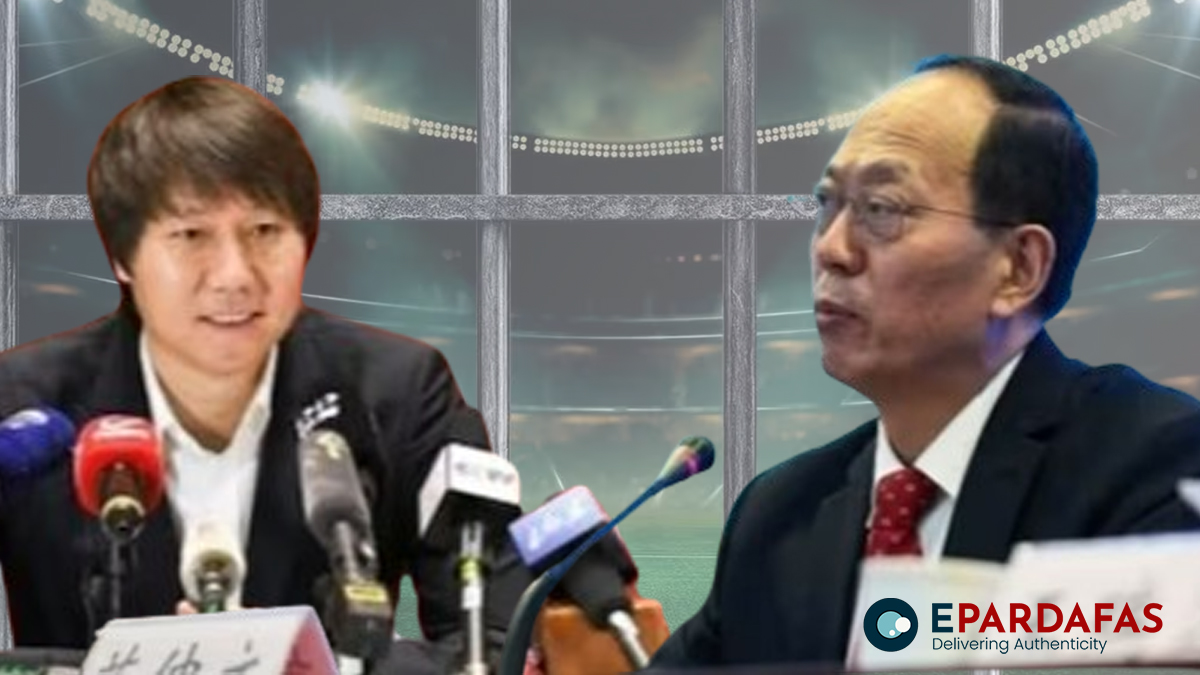
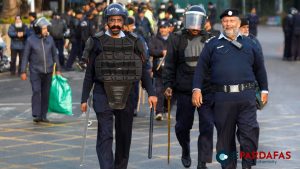
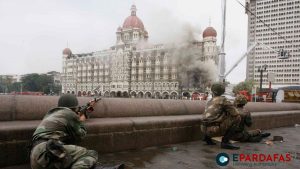

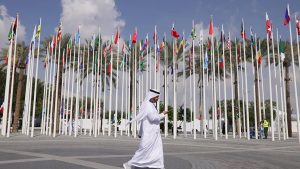

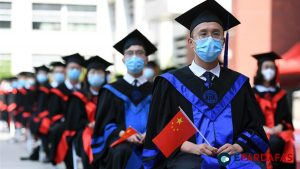





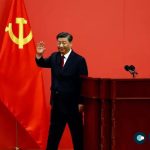
Comments